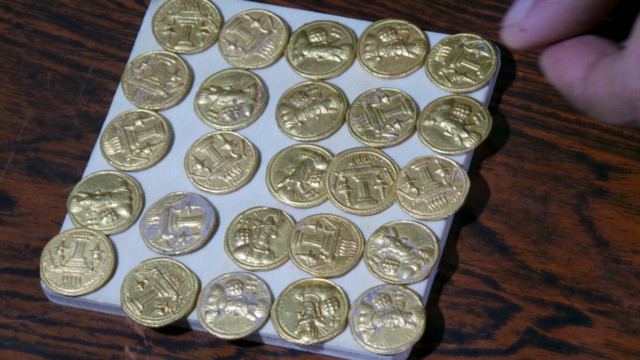
Kut, Iraq: Iraqi archaeologists have found 66 gold coins that are at least 1,400 years old, officials said on Monday, adding that they hope to put them on display in Baghdad’s National Museum.
The artefacts, which date back to the Sassanid era that extended from 225BC to 640AD, will be sent for laboratory tests in order to confirm their authenticity.
They were discovered in the town of Aziziyah, which lies 70km southeast of Baghdad in Wasit province, according to Hassanian Mohammed Ali, director of the provincial antiquities department.
The coins bore drawings of a king or god and depicted flames, he said.
Many of Iraq’s archaeological sites have been vandalised and encroached upon in recent decades, but especially in the years following the US-led invasion of 2003. The capital’s National Museum was also looted in its aftermath.
At the time, nearly 32,000 pieces were stolen from 12,000 archaeological sites across Iraq, and 15,000 others disappeared from the National Museum in Baghdad, according to official figures.
Thousands of artefacts were also taken before the invasion in illegal excavations at remote sites.
During the rule of now-executed dictator Saddam Hussein, Iraq enforced laws protecting historical sites.
But since his ouster, such laws have seen lax enforcement and the government has prioritised reconstruction of the war-battered country over preservation of its heritage sites.












